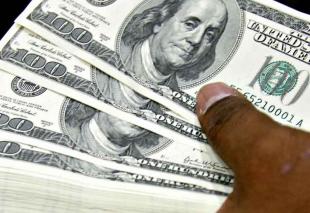

Hotel CEO turnover at 50 largest chains on the up

The turnover of CEOs amongst the world’s 50 largest hotel companies doubled in 2011, compared with 2009, with 12% of companies now being led by a new chief executive.
However, the choice of CEOs is becoming more conservative in the sector, with internal promotions more common, or appointments from within the hotel industry.
These were the key findings of a study by HVS Executive Search, co-authored by Chris Mumford and Thomas Mielke.
This biennial CEO monitor tracks succession rate, as well as the profiles and demographics of outgoing and incoming CEOs. The largest company in the top 50* is InterContinental
Hotels Group (with 4437 properties), while MGM Resorts International is the smallest (with 17
properties).
The previous HVS study showed an average of five companies in the top 50 changed their CEO each year.
The onset of the economic downturn in 2008 saw this rate spike to seven changes, then drop to
just three in 2009 as boards opted for stability. A further rise in 2011 demonstrates that as companies become increasingly stable and see the beginnings of economic improvement they are prepared tomake major business changes such as appointing a new CEO.
“During the early days of the global economic meltdown we certainly witnessed shareholders and
boards electing to either stick by their management teams and support them out of recession, or to make a quick change and recruit a CEO suitable for the tough times ahead,” commented Chris
Mumford, HVS Executive Search, President – Europe, Middle East & Africa.
“Increased CEO turnover over the past two years could be also attributed to boards starting to lose patience with the executive leadership at those companies where the impact of the financial crisis is still being felt and recovery is taking longer than forecast.
“As we look ahead to the next two years we anticipate that changes will largely be driven by economic conditions; a company with financial stability and an aggressive growth strategy requires a different leadership skill set to one in survival mode,” he added.
Article continues on next page...
While the majority of CEO changes were planned events in 2011, there were twice as many planned successions as there were forced changes in leadership (8% versus 4%).
Disagreements in strategy between directors and management gave rise to an increase in forced succession, such as at NH Hoteles and Accor.
The study also reveals a change in the typical profile of a hotel company CEO due to the influx of
Chinese companies into the top 50 largest hotel companies. Leaders of these companies tend to be younger that their Western counterparts and are typically first-time CEOs groomed into the role by the chairman or previous CEO.
The average age of an incumbent hotel company CEO is 52, with the majority of CEOs in Europe and North America in their early 50s.
The number of Chinese hotel companies in the study caused the average age of a CEO in Asia drop from 56 in 2007 to 46, with incoming CEOs being an average of 44 years old. European and North American CEOs are six years older on their date of appointment.
As the Chinese market matures and the talent pool grows bigger the average age of a CEO across the study is expected to rise accordingly, and the CEO profiles begin to more closely mirror those of Europe and North America.
At the same time, as North American companies further increase their global reach more ‘global
citizens’ are likely to occupy the top seats. This in turn may see a reintroduction of CEOs from other sectors with experience of growing international brands.
The study also reveals that CEOs of privately owned companies tend to be younger than those of publicly listed companies at 46 years old, compared with 51.
* The study included data from the 50 largest hotel companies as published by HOTELS Magazine in September 2011.